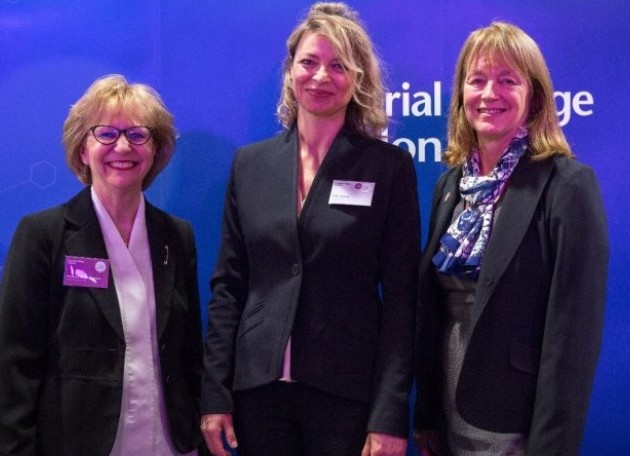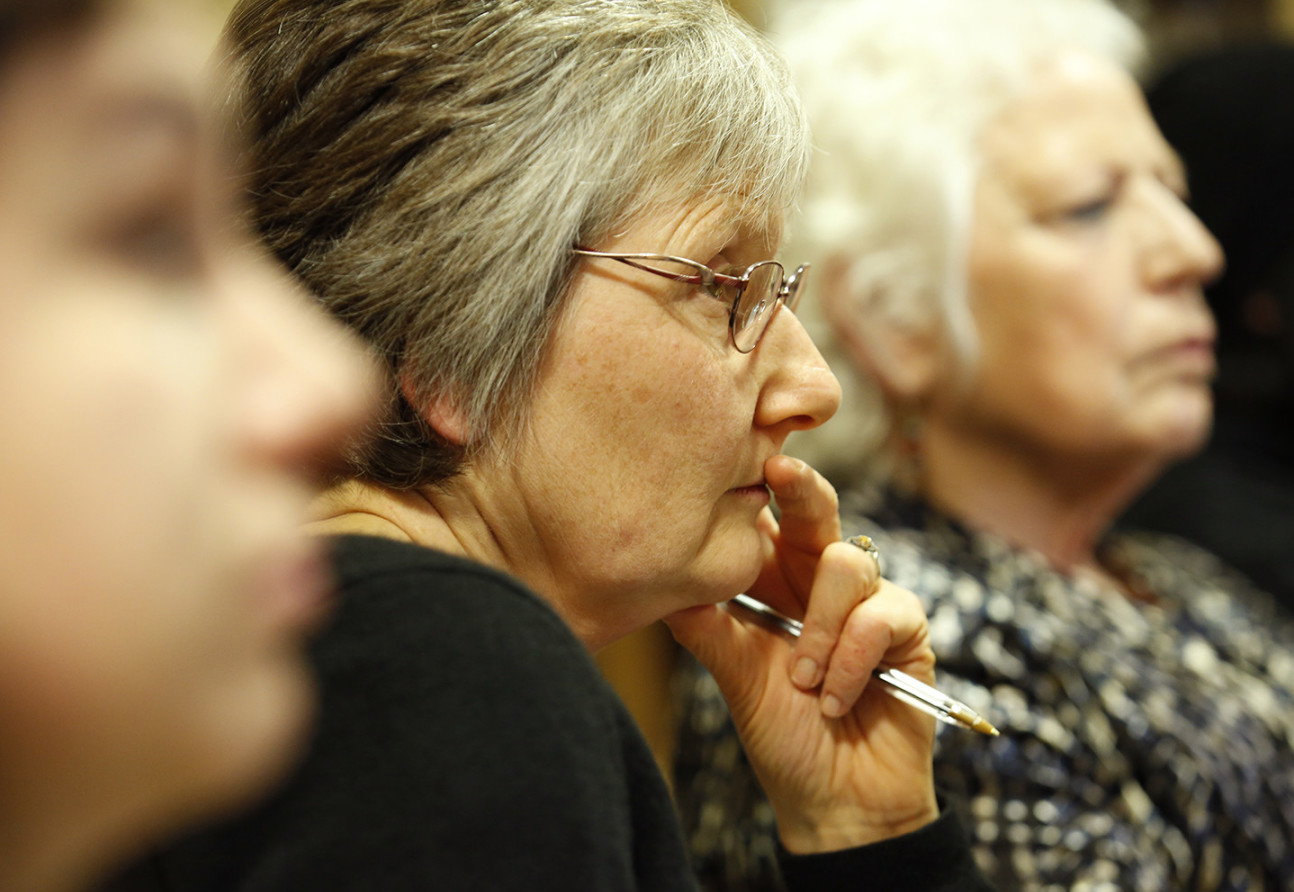Patient access
Funding bodies expect public involvement in your research activities. By involving patients in your research, you can ensure that your research plans remain relevant to patient interest, that they are feasible and acceptable to potential research participants and that you communicate and disseminate your research in an accessible way to the general public.
The Imperial Involvement Group for Cancer can help in the following ways:
• review a lay summary
• review a Patient Information Sheet
• provide input into grant applications
• ensure you disseminate your research findings to the public is an accessible format
Find a list of organisations and contacts who can support you with patient access.
Or if you would like to discuss your needs in further detail, please contact Kelly Gleason.
It all started with a question: What makes you feel alive?
Why do we work with patients and the public?
Public involvement in health research has been recognised by Higher Education Institutions, Research Organisations and the Government (NHS) as having valuable impact on research outcomes, clinical trials and precision treatments.
There are many terms associated with the inclusion of the public in health research, and it is important to understand the difference between them. Predominantly, you will see the terms Involvement, Engagement and Participation. Cancer Research UK defines these terms as follows:
Involvement, engagement and participation
Involvement
Involvement is when patients use their experience of cancer to help shape research. You can consult, collaborate or partner with patients. Involvement can add value at all stages of the research cycle.
Engagement
Engagement is where information and knowledge about research are shared with the public.
Participation
Participation is where patients or healthy volunteers take part in research as the subject of the study. This is where research is being done to them, not with them.
Kelly Gleason, the CRUK Centre Nurse, has been working closely with CRUK Imperial Centre researchers to bridge the gap between patient and researcher in cancer research at Imperial for over a decade.
 Through Kelly’s work with the CRUK Imperial Centre Public Involvement Group for Cancer, our researchers, nurses, patients and staff collectively advocate for a culture of involvement with patients and the public at Imperial. We champion patient-led projects and activities through the CRUK Imperial Centre Public Involvement Group for Cancer, Imperial Science Cafes and public engagement (we are actively involved in Lab tours, Research open days, Public talks and lectures and the annual Imperial Festival).
Through Kelly’s work with the CRUK Imperial Centre Public Involvement Group for Cancer, our researchers, nurses, patients and staff collectively advocate for a culture of involvement with patients and the public at Imperial. We champion patient-led projects and activities through the CRUK Imperial Centre Public Involvement Group for Cancer, Imperial Science Cafes and public engagement (we are actively involved in Lab tours, Research open days, Public talks and lectures and the annual Imperial Festival).
If you would like further information on how to get involved with public involvement as a researcher, patient or member of the public, please contact Kelly (k.gleason@imperial.ac.uk).
Are you a researcher at Imperial, a patient or member of the public? Are you thinking about getting involved in PPI? See what advice our patients and researchers have to offer in the following videos
Opportunities for Public Involvement
The Imperial Public Involvement Group for Cancer
Funding bodies are increasingly expecting public involvement in your research activities. By involving patient and public groups in your research, you can ensure that your research plans remain relevant to patient interest, that they are feasible and acceptable to patients involved in clinical trials and that you can communicate and disseminate your research to the general public.
The Imperial Involvement Group for Cancer meets regularly and responds to requests by emailin between meetings. The Imperial public invovlemet group for cancer can help you to:
- review a lay summary
- review a Patient Information Sheet
- prepare a grant application
- disseminate results
- find a patient representative for your study management committee
If you would like to access the group, please contact Kelly Gleason.
Imperial Science Cafes

The Imperial Science Cafés are a unique opportunity for cancer researchers to present and discuss their research projects with individuals affected by cancer in a relaxed, open and informal setting. These events are not only important for educating and engaging with the public and patients, but it can also provide researchers with valuable patient perspectives on their work through sharing their personal experiences.
Usually the Science Cafés are hosted at the Maggie’s Centre at Charing Cross Hospital. However, due to the current COVID pandemic, the Science cafe's will be moving to an online format for the time being. Please connect to the live webinar through the Imperial Events wesbsite.
If you are an Imperial Scientist and would like to present your research at a future Imperial Science cafe, please contact Kelly Gleason.
Imperial Science Cafes

Role of PET scan research in cancer treatment
Imperial Science Cafe Nov 2, 2021
Dr Preetha Aravind is a NCITA Clinical Research Fellow at Imperial College, London and a Clinician, Speciality trainee in Medical Oncology. She is doing her 2nd year PhD on novel PET imaging radiotracers in cancer treatment.
Preetha will share her research on the concept of PET scanning in the context of cancer treatment. She will discuss about imaging radiotracers that provide new insight into the tumour structure or function. The talk is to help understand the working of PET scans and its implications in the field of research and to get a better view on the thoughts from the public.

Functional Outcomes in Breast Surgery
Imperial Science Cafe May 27, 2021
The speakers of this event will share their research on outcomes following surgery for breast cancer, including reconstructive breast surgery. Outcomes measure how ‘successful’ a procedure or surgery is, for example with respect to patient appearance, quality-of-life and function. We will discuss how outcomes after breast surgery are currently measured and their limitations, including the need to better understand the patient perspective. We will also discuss ways to improve how we evaluate breast surgery using innovative technologies (imaging, sensing and robotics) and health economic analyses.

Lighting the way to better breast cancer surgery?
Imperial Science Cafe March 10, 2021
Lighting the way to better breast cancer surgery? Maria Leiloglou and Marta Kedrzycki
Maria Leiloglou is a 3rd year PhD student at the Hamlyn Centre for Surgical Robotics in the Department of Cancer & Surgery at Imperial College London. Martha Kedrzycki is a clinical research fellow in translational breast cancer surgery and is also in her 3rd year of her PhD at Imperial College London. Maria and Marta are working on fluorescence guided surgery in breast cancer. In our research, we use a fluorescent drug which targets/marks breast cancer, and then can essentially ‘light up the tumour’ in the infrared (not visible) spectrum. This helps the surgeon see where it is, how big it is, and how invasive it is in real-time on a visual display. The reason this is so important is because right now surgeons are limited to preoperative imaging or what they can see and feel during the surgery to guide them, which unfortunately is inadequate in about 20% of breast conserving operations (where they just take the lump out) and results in women needing another surgery. Using special image pattern analysis, Maria has been able to find significant differences between the cancer and normal tissue, to help make this technique more accurate and therefore clinically viable.

Transforming Data, Transforming Care.
Imperial Science Cafe November 26, 2020

People Like You: Written Portraits
Imperial Science Cafe November 11, 2020
We have launched Di Sherlock's Written Portraits: her poetry residency was part of our research project ‘People Like You’: Contemporary Figures of Personalisation, supported by the Wellcome Trust: https://peoplelikeyou.ac.uk/
Resources for the Public
Follow the links for further information on each item
Resources for Researchers
Follow the links for further information on each item









